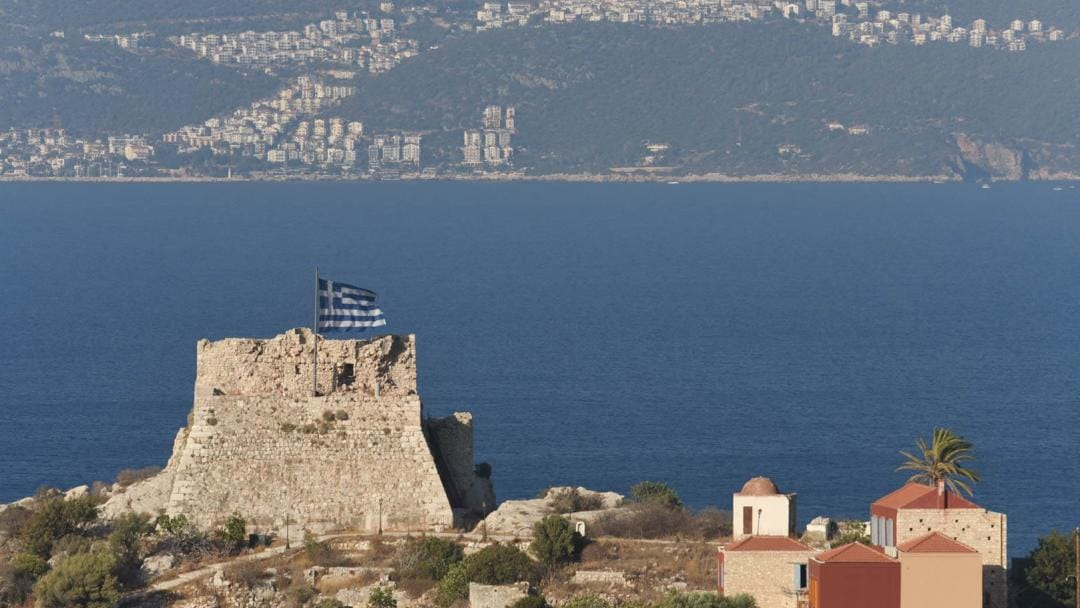Greece is the answer to Turkey's geopolitical conundrum in the East Mediterranean
Turkey now runs the risk of being isolated in the East Mediterranean after years of upholding its national interests at the expense of its partners and allies. With the East Mediterranean Gas Forum, the region is developing a legal order, and Ankara must follow suit or risk falling behind. Because of this, Israel, Syria, and Egypt have all been included in Turkey's pre-election foreign policy agenda. Greece is the answer to Turkey's geopolitical conundrum in the East Mediterranean, even though it may seem counterintuitive.
Despite differences regarding Hamas' classification as a terrorist group, Turkey and Israel are united by a common interest in Syria and Azerbaijan. Even though ties have been intermittently tense to nonexistent for almost 15 years, mending fences with Jerusalem is more of a matter of low-hanging fruit than a diplomatic power play. To avoid being left alone in the East Mediterranean, Turkey will require a lot more than that. In the end, the power dynamics in the region are maintained by Israel's close ties to Greece, Cyprus, and Lebanon as well as its historic maritime border agreement with those nations.
Turkey can work with Syria on a few specific issues, but a full restoration of diplomatic ties is unlikely. The dictator of Damascus has made it clear that he will not normalize relations with Ankara until Turkey withdraws its forces from northern Syria, despite diplomatic overtures mediated by Russia in recent months. Turkey is as likely to withdraw from northern Syria as Israel is to withdraw from the Golan Heights given the security situation along the Turkish-Syrian border—not at all.
Following the ousting of the Muslim Brotherhood in 2013, diplomatic ties between Turkey and Egypt were severed. Cairo recently outlined three requirements for reestablishing diplomatic ties with Ankara. The Muslim Brotherhood members that the Egyptian government is seeking must first be extradited from Turkey. Second, Turkey needs to pull its troops and militias it supports out of Libya. Third, in exchange for Turkey's admission to the East Mediterranean Gas Forum, Ankara must resolve its maritime disputes with Athens and Nicosia.
Even though it's possible, a full improvement in relations appears unlikely unless Egypt modifies its position or Ankara makes concessions to Cairo. While Ankara may accede to some of Cairo's requests for extradition, it's backing of the Government of National Unity in Tripoli is essential to its revisionist objectives in the East Mediterranean. Likewise, Turkey may have the political will to settle its maritime disputes with NATO ally Greece, but it will be much harder to close the divide with Cyprus if the Turkish occupation and island reunification are not addressed.
A key element of Turkey's Mavi Vatan (Blue Homeland) strategy is Libya. Simply put, because Turkey is not a signatory to the United Nations Convention on the Law of the Sea (UNCLOS), it has its interpretation of international maritime law. Turkey asserts an Exclusive Economic Zone (EEZ) that ignores the Greek islands of Rhodes, Karpathos, and Crete until it reaches Libya's alleged EEZ, cutting diagonally through Greece's territorial waters. Similar to Turkey, Greece and Egypt's territorial waters are violated by Libya's alleged EEZ.
Ankara's isolation in the East Mediterranean will continue if it upholds its unreasonable stance, making Turkey's withdrawal from Libya impossible. Turkey will be welcomed into the regional order if it exhibits flexibility by reaching a compromise with Egypt and Greece. From Nicosia to Washington, and from Paris to Jerusalem, capitals would rejoice at this significant change in Turkish foreign policy. Even though it's unlikely, it's still within the realm of reason and possibility.
Turkey should give up its revisionist ambitions in the East Mediterranean to accomplish two goals at once. Aside from Greece and Cyprus, this would strengthen Turkey's ties with Egypt, Lebanon, Israel, and Syria, all of which have or plan to have agreements regarding maritime boundaries with one another. If Turkey contests the legitimacy of Greece's EEZ, it should follow Albania's example and air its grievances by bringing a case before the International Court of Justice. At least three advantages would result for Turkey from this.
First, it would satisfy half of Egypt's third requirement for reestablishing diplomatic relations by using the rule of law rather than force to settle Turkey's maritime disputes with Greece. Second, it would fulfill Cairo's second requirement for reestablishing diplomatic relations by laying the groundwork for Turkey to gradually reduce its military presence in Libya. Third, it would also usher in a new era of Turkish cooperation in the Eastern Mediterranean, reestablish Turkey as a trustworthy NATO ally, strengthen Ankara's ties with Washington, and raise the possibility—but not necessarily the certainty—that Congress will approve the sale of F-16 fighter jets to Turkey.
Whether it's wishful thinking or not, diplomacy has won out in the East Mediterranean region since a devastating earthquake on February 6 that claimed more than 50,000 lives in Turkey and Syria. incidents involving the navy and coast guard as well as Turkish aerial incursions over Greek islands have ended. Later this year, Greece will support Turkey's bid to lead the International Maritime Organization (IMO). Turkey has committed to backing Greece's application for a seat on the UN Security Council in 2025–2026. A century after the establishment of the modern Turkish state, Ankara is forced to confront Greece to resolve its geopolitical impasse in the East Mediterranean.


Comments
Post a Comment